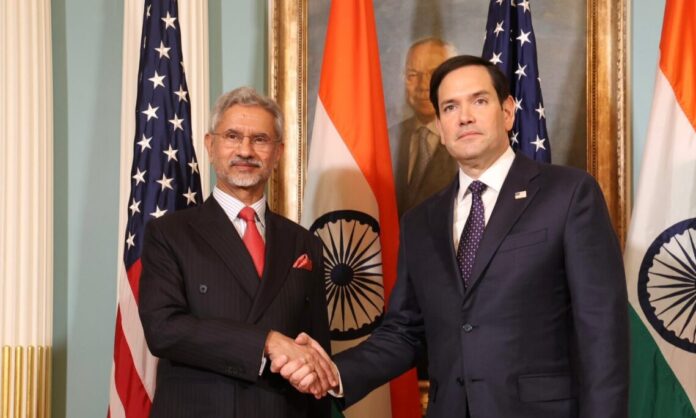Washington DC [US]: Amid rising global trade tensions, US Secretary of State Marco Rubio held a telephonic discussion with India’s External Affairs Minister (EAM) S Jaishankar on Monday, focusing primarily on the issue of US reciprocal tariffs on Indian goods, according to US State Department Spokesperson Tammy Bruce.
The conversation follows the recent tariffs imposed by President Donald Trump, which have disrupted international markets and prompted fresh dialogue between major trading partners.
“Secretary of State Marco Rubio spoke with Indian External Affairs Minister Subrahmanyam Jaishankar today. The Secretary and EAM affirmed the strength of the U.S.-India strategic partnership and discussed opportunities to deepen collaboration in the Indo-Pacific region,” said Bruce.
Focus on Trade and Indo-Pacific Collaboration
The two sides explored:
- The early conclusion of a Bilateral Trade Agreement
- Strengthening cooperation in the Indo-Pacific
- Strategies for ensuring a fair and balanced trade relationship
Jaishankar also took to X (formerly Twitter) after the discussion, sharing:
“Good to speak with Secretary Marco Rubio today. Exchanged perspectives on the Indo-Pacific, the Indian Sub-continent, Europe, Middle East/West Asia and the Caribbean. Agreed on the importance of the early conclusion of the Bilateral Trade Agreement. Look forward to remaining in touch.”
Impact of US Tariffs on India
According to a new Global Trade Research Initiative (GTRI) report, the new US tariff regime could cause a decline of USD 5.76 billion (6.41%) in Indian exports to the US in 2025.
Key Findings from the GTRI Report:
- India’s 2024 exports to the US totaled USD 89.81 billion.
- New tariffs could shrink this by USD 5.76 billion.
- Report evaluates sectoral exposure, tariff adjustments, and competitive shifts with China, Mexico, and Canada.
- Some sectors may gain ground, while others may face significant losses.
Despite these challenges, both Washington and New Delhi appear committed to keeping lines of communication open and leveraging strategic opportunities—especially in trade, regional stability, and shared geopolitical goals.


